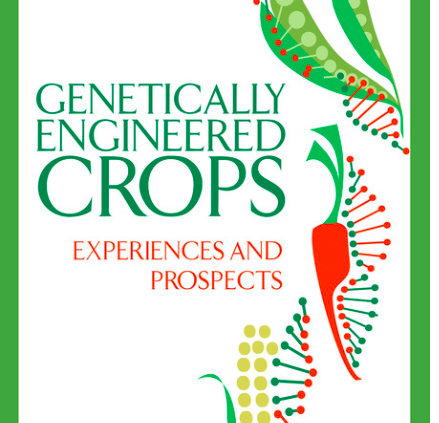-
Tips for becoming a good boxer - November 6, 2020
-
7 expert tips for making your hens night a memorable one - November 6, 2020
-
5 reasons to host your Christmas party on a cruise boat - November 6, 2020
-
What to do when you’re charged with a crime - November 6, 2020
-
Should you get one or multiple dogs? Here’s all you need to know - November 3, 2020
-
A Guide: How to Build Your Very Own Magic Mirror - February 14, 2019
-
Our Top Inspirational Baseball Stars - November 24, 2018
-
Five Tech Tools That Will Help You Turn Your Blog into a Business - November 24, 2018
-
How to Indulge on Vacation without Expanding Your Waist - November 9, 2018
-
5 Strategies for Businesses to Appeal to Today’s Increasingly Mobile-Crazed Customers - November 9, 2018
Academies of Science finds GMOs not harmful to human health
While they found no evidence suggesting a risk to humans and animals who consumed GMO crops, the researchers also looked at the crops’ effects on the environment and agriculture.
Advertisement
Following a review of nearly 900 studies, the National Academies of Sciences, Engineering, and Medicine reported today that genetically modified organisms – GMOs – pose no more of a health risk than traditionally bred crops. Nonetheless, it says that nationwide, the introduction of the crops does not appear to have accelerated the rate at which crop yields were already improving.
On the other hand, non-GMO products account for a very small portion of the overall food supply in the US.
According to Dr David Ervin, professor emeritus of environmental management and economics at Portland State University, who was not involved with the report, “a major contribution is the report’s admonition that current regulation of GE crops has not kept pace with science”.
Genetically engineered crops artificially manipulate the genetic material of plants to help them be pest resistant and to withstand certain herbicides. “If I don’t want to have extra herbicide or if I’m not sure how it’s going to affect the environment, whatever the reason might be, we should label it so we can decide”, said Dr. Oz.
A committee set up by the National Academy poured over more than 900 research publications investigating the effects of genetic meddling in corn, soybean, and cotton.
“Patterns of change in cancer incidence in the United States and Canada are generally similar to those in the United Kingdom and western Europe, where diets contain much lower amounts of food derived from [modified] crops”, the report said. It reviewed epidemiological data from the US and Canada, where food made with genetically engineered plants has been consumed for the past two decades, and compared it with information from western Europe, where such foods aren’t widely eaten.
These crops can actually benefit humans more than non-gmo’s due to their increase in vitamins such as vitamin a. Nor is it feeding with the world with substantially increased yields, as proponents promised. This allows farmers to spray crops for weeds, while not harming the crops.
On the other hand, groups critical of GMOs were more skeptical of the report.
The report specifically addressed a commonly cited link between GE crops and falling populations of monarch butterflies.
There are no labeling laws disclosing whether food contains GMO’s, in the US, although the Environmental Working Group, (EWG) consumer website reports that 9 out of 10 people in this country would like to be informed.
The American Soybean Association welcomes a report issued recently by the National Academy of Sciences Board on Agriculture and Natural Sciences that points to the safety and benefits of continued use of genetically modified crops for soybean producers, with specific regard to economic and environmental impact.
Advertisement
Ultimately, the report won’t likely cool down this hot-button issue.





























